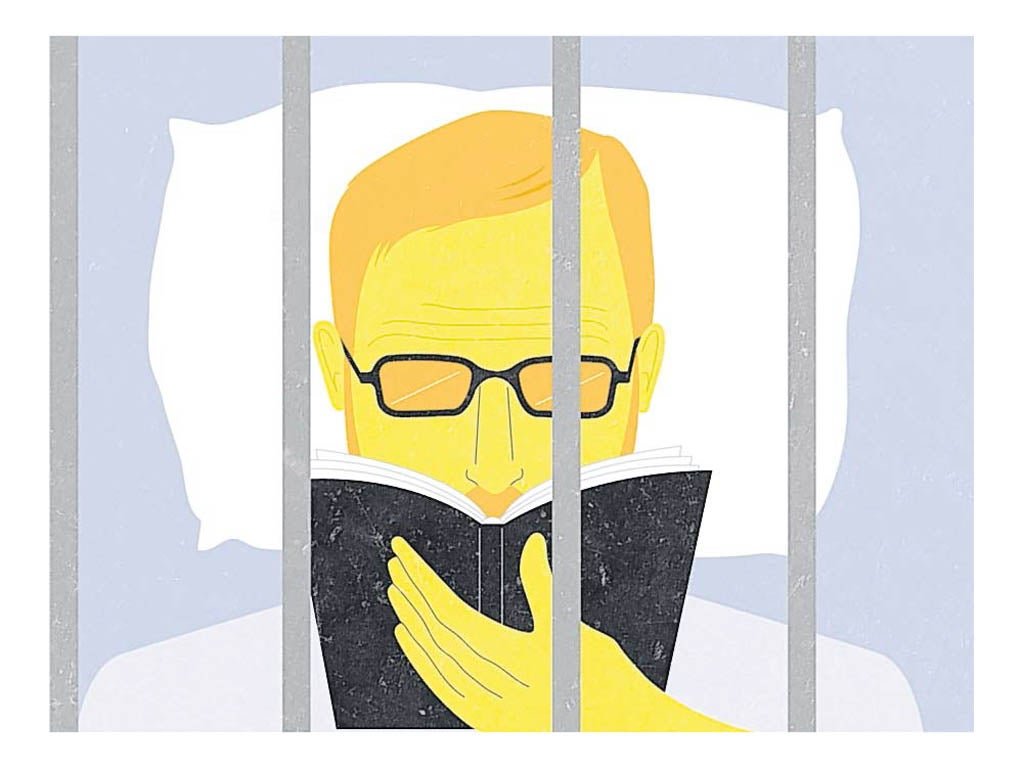Jonathan Aitken: What Chris Huhne and Vicky Pryce can expect from prison - by a man who knows
In a column published in October 2011, the former Tory MP, who was jailed for perjury, said prisons are humane and a good place to shed delusions

Your support helps us to tell the story
From reproductive rights to climate change to Big Tech, The Independent is on the ground when the story is developing. Whether it's investigating the financials of Elon Musk's pro-Trump PAC or producing our latest documentary, 'The A Word', which shines a light on the American women fighting for reproductive rights, we know how important it is to parse out the facts from the messaging.
At such a critical moment in US history, we need reporters on the ground. Your donation allows us to keep sending journalists to speak to both sides of the story.
The Independent is trusted by Americans across the entire political spectrum. And unlike many other quality news outlets, we choose not to lock Americans out of our reporting and analysis with paywalls. We believe quality journalism should be available to everyone, paid for by those who can afford it.
Your support makes all the difference.+++
UPDATE: This article was originally published in The Independent on Saturday January 8th 2011, under the headline "I found kindness, camaraderie and humour in prison. I hope he [David Chaytor] does too". It is being republished digitally in light of the sentencing of Chris Huhne and Vicky Pryce.
+++
Shock
David Chaytor will find the start of his sentence a cultural and personal shock.
A high-profile inmate carrying the baggage of the parliamentary expenses scandal should be prepared for a bumpy ride from some of his fellow prisoners and from the media.
But the bumps should not be too serious, nor last too long – provided he keeps his head down, avoids being a tall poppy, and goes with the flow of life on the inside.
I make these predictions from my own difficult yet strangely encouraging experiences. When I arrived in HMP Belmarsh on 8 June 1999 the initial impact was disorienting. From the moment I entered "the cage" (the big communal reception cell) the cacophony of unfamiliar noise, the high-voltage emotions of anger and despair from just-sentenced men coming straight from court, and the unexpected rituals of reception all put me off balance.
Unsettling rituals
One saving grace, which will be shared by David Chaytor, was that I had pleaded guilty and was unsurprised by my sentence. So I did not join in the noisy protestations of innocence which seemed to be voiced by about half the prisoners in the cage along with much cursing of judges and juries.
The rituals of prison induction are unsettling. They include strip searching, mugshots, finger printing, the issue of ill-fitting uniforms and the confiscation of personal items (belts, shoe laces, notebooks with ring binders) that could possibly be used for self-harming.
Another oddity, which provided me with a rare moment of humour, was my interview with the prison psychiatrist, who had to assess whether I was a suicide risk. He inquired if anyone other than my immediate family knew I had been sent to prison. When I replied that I thought between 10 and 15 million people knew, the psychiatrist asked me a supplementary question in a tone which was kind, if not clinical: "Have you ever suffered from delusions?"
Prison is a good place for shedding delusions. Whether you're an ex-MP or an ex-rock star, you soon find there's no such thing as an important inmate. All are equal in prison uniform. Any attempt to suggest you think otherwise will be met with some aggressive verbals from your fellow cons.
Humanity behind bars
But if you fit in and join the fraternity of the fallen with quiet acceptance, the chemistry on the wing can start to feel friendly. Even among men who have done bad deeds, kindness, camaraderie and humour can prevail.
For all their problems, our prisons are on the whole run humanely. Prison officers deserve more credit than they get for working under constant pressure. If they bark at a high-profile inmate, as they occasionally did to me, they are doing you a favour by showing that there is no special treatment for public figures.
David Chaytor's life as a public figure is over, but if he does his bird quietly, accepts his mistakes and starts to think positively about a different life after release, he may find the road to rehabilitation less difficult than it feels on day one.
Join our commenting forum
Join thought-provoking conversations, follow other Independent readers and see their replies
Comments